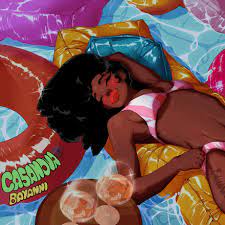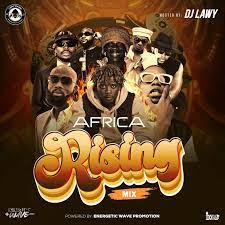
Bunny Wailer, a Jamaican reggae singer, songwriter, and percussionist who made significant contributions to the development and global recognition of reggae music.
Bunny Wailer, born Neville O’Riley Livingston on April 10, 1947, in Kingston, Jamaica, was a founding member of The Wailers, a seminal reggae group that also included Bob Marley and Peter Tosh. From an early age, Bunny showed a deep passion for music and a keen interest in the Rastafarian movement.
In the early 1960s, Bunny Wailer formed a band called The Wailing Wailers alongside childhood friend Bob Marley and Peter Tosh. The group initially found success with their fusion of ska, rocksteady, and soul music. Their harmonious vocal arrangements and socially conscious lyrics established The Wailers as a force to be reckoned with in the Jamaican music scene.
As The Wailers evolved and transitioned to the reggae genre, Bunny Wailer’s distinct vocal style and songwriting abilities played a vital role in shaping the group’s sound. While Bob Marley became the face of The Wailers, Bunny’s contributions were equally significant, particularly in terms of his spiritual and introspective lyrics.
Despite achieving considerable success with The Wailers, Bunny Wailer embarked on a solo career in the early 1970s. His debut album, “Blackheart Man,” released in 1976, is widely regarded as a reggae masterpiece. The album’s title track and songs like “Dreamland” and “Fig Tree” reflected his deep Rastafarian beliefs and conveyed social and spiritual messages with profound sincerity.
Throughout his solo career, Bunny Wailer released numerous critically acclaimed albums, including “Protest” (1977), “Marketplace” (1985), and “Time Will Tell: A Tribute to Bob Marley” (1990). He continued to explore a diverse range of musical styles, incorporating elements of roots reggae, dancehall, and African rhythms into his music.
Bunny Wailer’s commitment to Rastafarianism extended beyond his music. He advocated for the recognition and acceptance of Rastafarian culture, promoting its ideals of peace, love, and African heritage. Bunny’s influence as a cultural ambassador helped solidify Rastafarianism as an integral part of Jamaican identity and contributed to its global recognition.
his musical achievements and cultural contributions, Bunny Wailer received several prestigious awards throughout his career. In 1986, he was awarded the Order of Distinction, Jamaica’s fifth-highest honor, for his exceptional contribution to Jamaican music. In 2012, Bunny was honored with the Order of Jamaica, the country’s fourth-highest honor.
Bunny Wailer’s passing on March 2, 2021, marked the end of an era in reggae music. His death was deeply mourned by fans and fellow musicians worldwide, as they recognized the immense impact he had on the genre. His music, with its profound messages of spirituality, social consciousness, and liberation, continues to inspire and resonate with audiences globally.
Bunny Wailer’s enduring legacy as one of reggae’s most iconic figures remains intact. His pioneering work within The Wailers and his subsequent solo career helped shape the trajectory of reggae music, elevating it to international prominence. Bunny’s songs, including “Blackheart Man,” “Bald Head Jesus,” “Rise and Shine,” and “Cool Runnings,” serve as timeless reminders of his immense talent and enduring influence.
Bunny Wailer’s unwavering commitment to preserving reggae’s authenticity, spirituality, and cultural significance has left an indelible mark on the music world, ensuring that his voice and message will continue to resonate for generat
ions to come.


























0 comment